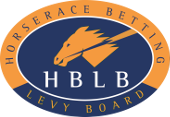Monday 21st November 2022
Horserace Betting Levy Board Publishes International Codes of Practice for 2023
The Horserace Betting Levy Board (HBLB) has published the 45th edition of the Codes of Practice on equine disease, in preparation for the 2023 equine breeding season. These are available online only at codes.hblb.org.uk.
The online version may be accessed as a full document or as separate sections. It may be downloaded in pdf format for printing or viewing offline.
The updated free app, EquiBioSafe, which covers both breeding and horses in training will be released on iOS and Android in the New Year.
Applying to all breeds of horse and pony, and to both natural mating and AI, the Codes are an essential guide for the prevention and control of equine diseases which represent a potential major threat to equine breeding:
- Contagious equine metritis (CEM)
- Equine viral arteritis (EVA)
- Equine herpesvirus (EHV)
- Equine coital exanthema (ECE)
- Equine infectious anaemia (EIA)
- Dourine
- Guidelines on equine influenza (EI)
- Guidelines on piroplasmosis
- Guidelines on strangles
- Guidelines on West Nile fever (WNF)
- Guidelines on artificial insemination (AI)
For each disease there are sections which describe transmission and clinical signs, as well as advice on prevention, diagnosis and control of infection. The Codes explain the notification requirements that apply for the four diseases that are notifiable by law: CEM, EVA, EIA and dourine.
The Codes of Practice are reviewed annually by an expert Sub Committee of HBLB’s Veterinary Advisory Committee. The Sub Committee includes representatives of:
- Thoroughbred breeders in Britain, Ireland, France, Germany and Italy
- The non-thoroughbred sector
- Defra
- Equine veterinary practitioners
- Scientists expert in infectious disease.
Professor Mark Bowen, Chairman of the Codes of Practice Sub Committee, said:
“The 2023 version sees a relatively small number of updates compared with previous years. These include clarification of the process to confirm freedom from CEM and revised guidelines for strangles. Advice on available vaccines in Appendix 8 has also been reviewed to reflect the up-to-date position.
“As ever the horse world as a whole benefits hugely from the rapid response disease monitoring provided by the Equine Infectious Disease Surveillance service now based at Cambridge under the leadership of Dr Richard Newton. Effective collaboration on disease reporting and management is vital for us all, and the support and co-operation of all elements of the horse industry is very much appreciated.”
For further information please contact Annie Dodd, HBLB Grants Manager by email at annie.dodd@hblb.org.uk.
